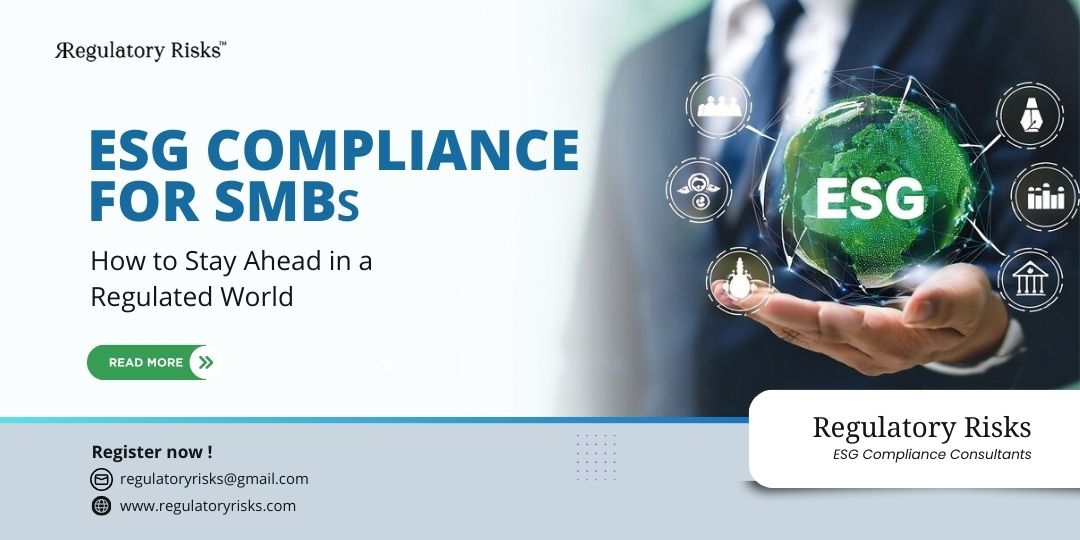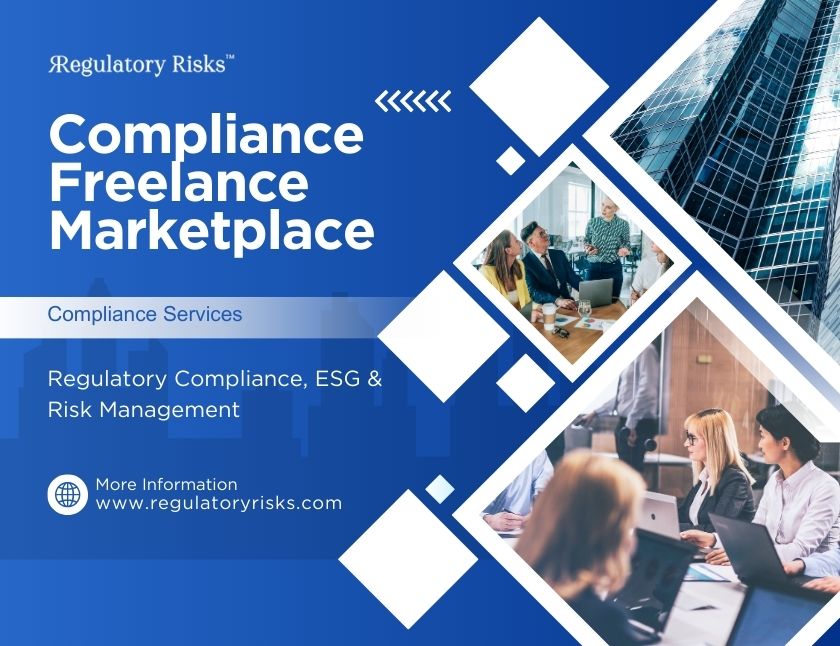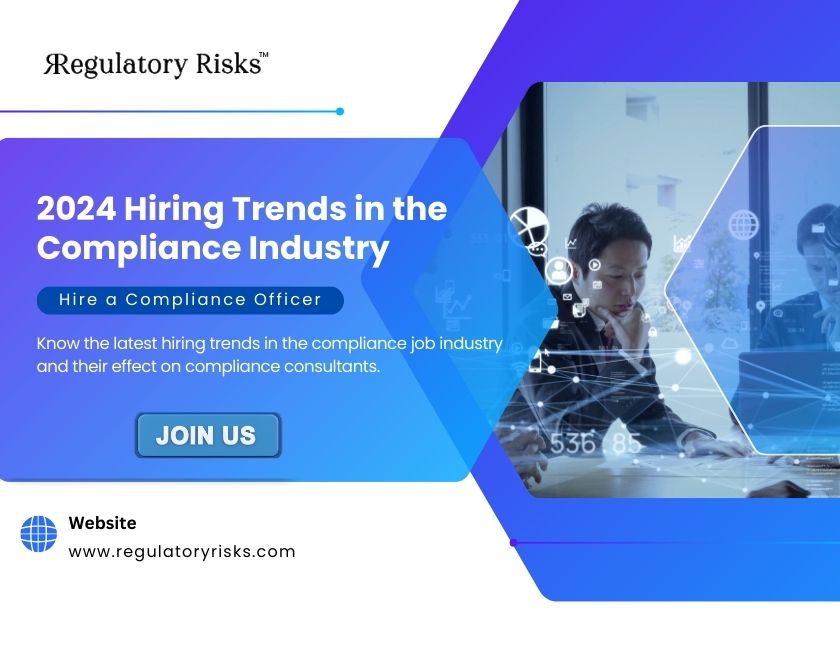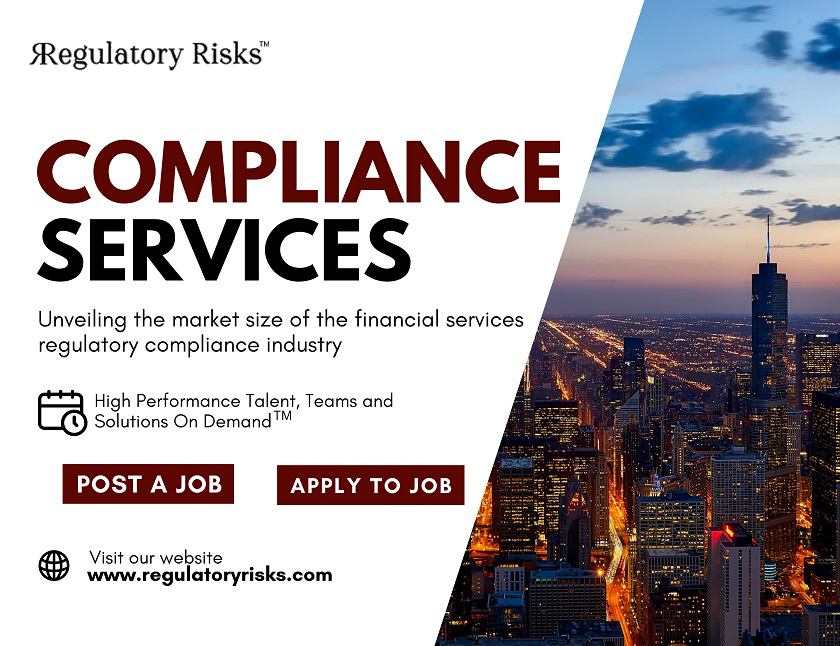In today's global economy, where regulatory frameworks are more stringent than ever, small and medium-sized businesses (SMBs) face unique challenges. Balancing compliance with Environmental, Social, and Governance (ESG) standards while maintaining competitiveness is no easy task, especially for businesses in high-stakes sectors like financial services, cryptocurrency, technology, and online casinos. Recent regulatory actions, particularly around greenwashing, are reshaping expectations, urging SMBs to develop more robust ESG programs. With tools like ESG consulting platforms and compliance freelance marketplaces, SMBs can navigate the complex landscape of ESG compliance efficiently and affordably.
This article explores the recent crackdown on greenwashing, expectations for SMBs in ESG program development, and the pivotal role that ESG consulting solutions can play in this journey. We'll also highlight how a flexible approach to hiring expertise through freelance marketplaces can be a game-changer for SMBs looking to stay compliant and competitive.
The Greenwashing Crackdown: A Wake-Up Call for SMBs
Regulatory bodies around the world are becoming increasingly vigilant about greenwashing—the practice of making misleading claims about a product or company's environmental impact. Recent cases underscore the high cost of non-compliance and the need for SMBs to ensure that ESG claims are accurate and verifiable.
Keurig Dr Pepper Inc.: This company recently settled with the SEC after facing accusations that it misled consumers regarding the recyclability of its K-Cup pods. This case sends a strong message: environmental claims must be backed by tangible, verifiable data.
WisdomTree: The investment firm received a Wells Notice from the SEC, questioning the ESG credentials of its sustainable ETFs. The action emphasizes that financial products labeled as sustainable must genuinely reflect ESG principles, pushing all businesses to reassess their alignment with ESG standards.
These cases are a clear warning to SMBs that ESG disclosures should be accurate and built on concrete evidence. Failure to do so could lead to costly penalties and lasting damage to a company's reputation.
Why ESG Compliance Matters for SMBs
For SMBs, ESG compliance isn't just about avoiding fines—it's about building trust with stakeholders and contributing to global sustainability. With investors, customers, and employees all prioritizing corporate responsibility, ESG compliance has become crucial to business success.
Regulatory Compliance: SMBs must adhere to current ESG regulations and stay ahead of potential changes. This requires a proactive approach to compliance, often supported by ESG compliance consultants.
Transparency and Accountability: Clear and honest ESG reporting is now expected. SMBs must set realistic goals, track their progress, and be transparent about both achievements and areas where improvement is needed.
Stakeholder Engagement: Beyond regulatory obligations, SMBs face rising pressure from investors and customers to demonstrate social responsibility. Ethical governance and sustainable practices are fast becoming key to retaining talent and attracting new business.
Expectations for SMBs in Developing ESG Programs
As more regulatory bodies focus on ESG compliance, SMBs are under increasing pressure to establish robust, transparent, and effective ESG programs. Here are some key expectations:
Commitment to Long-Term Goals: SMBs need to demonstrate that they are committed to ESG values over the long term, rather than making short-term or superficial changes.
Proactive Risk Management: By identifying and mitigating ESG-related risks early, SMBs can stay compliant and gain a competitive edge.
Regular Reporting: Regulatory bodies expect businesses to maintain accurate and timely ESG reports, showcasing both progress and areas for improvement.
The Role of ESG Consulting Platforms
For SMBs looking to navigate ESG compliance efficiently, ESG Consulting Platforms provide invaluable resources, expertise, and technological support.
Access to Experts: These platforms connect businesses with seasoned ESG consultants who are familiar with the specific challenges of sectors like financial services, cryptocurrency, and tech. SMBs can receive tailored advice to address their unique needs.
Data Management and Analysis: ESG platforms often integrate tools for data collection, management, and reporting, making it easier for SMBs to track ESG metrics and present data-driven reports to regulators and stakeholders.
Cost Efficiency: By using a Compliance Freelance Marketplace, SMBs can access the expertise they need without the high costs associated with hiring full-time staff. This is especially advantageous for businesses with limited budgets.
Benefits of Using Compliance Freelance Marketplaces
Compliance Freelance Marketplaces give SMBs the flexibility to engage ESG experts for short-term projects or ongoing support, providing access to a diverse pool of consultants without long-term commitments.
On-Demand Expertise: Freelance marketplaces allow SMBs to scale up or down as needed, engaging experts for specific projects without the overhead of permanent hires.
Diverse Talent Pool: Freelancers with specialized ESG knowledge—from carbon accounting to social impact measurement—can provide insights tailored to the needs of each industry.
Agility and Innovation: Freelancers often bring fresh perspectives and the ability to implement solutions quickly, helping SMBs to adapt to regulatory changes with greater agility than traditional consultancy models.
Case Study: A Tech Platform's ESG Compliance Journey
To illustrate the benefits of using an ESG Consulting Platform and Compliance Freelance Marketplace, consider a hypothetical blockchain-based tech platform:
Challenge: The platform faced scrutiny over its energy consumption, as blockchain technology is known for high energy demands.
Solution: By connecting with an ESG consultant through a freelance marketplace, the platform transitioned to a more energy-efficient consensus mechanism, reducing its carbon footprint.
Outcome: This shift not only aligned the platform with ESG standards but also attracted eco-conscious investors, giving it a competitive edge in the market.
Steps SMBs Can Take to Stay Ahead of ESG Regulations
For SMBs in high-stakes industries, staying proactive about ESG compliance is key. Here are essential steps to ensure ongoing alignment with ESG requirements:
Continuous Monitoring: Use real-time regulatory updates to keep track of emerging trends in ESG compliance.
Internal Capacity Building: While external consultants are crucial, building in-house ESG expertise can help SMBs sustain compliance efforts over time.
Strategic Integration: Make ESG a core part of your business strategy, using sustainability as a driver for innovation and growth.
Preparing for the Future of ESG Compliance
With ESG regulations expected to evolve rapidly, SMBs need to prepare for tomorrow’s challenges today. Investing in flexible consulting resources and adopting a strategic approach to ESG compliance can help SMBs to stay ahead.
Embrace Digital Solutions: Utilize ESG software tools that simplify data management and streamline reporting.
Focus on Long-Term Goals: Rather than aiming for quick wins, SMBs should commit to long-term ESG goals that align with their overall business objectives.
Adaptability: As regulations shift, SMBs must be ready to adapt quickly, whether by hiring freelance ESG consultants or adopting new technologies.
The Role of ESG in Attracting Investment and Talent
An effective ESG program is about more than compliance; it can also help attract investors and top talent. As more stakeholders prioritize sustainability, SMBs with strong ESG programs are better positioned to secure investment and retain dedicated employees.
Investor Attraction: Many investors now view sustainability as a prerequisite, making ESG compliance essential for securing funding.
Employee Engagement: A commitment to ESG can improve employee satisfaction and loyalty, as staff members increasingly seek companies that align with their values.
Conclusion
For SMBs, navigating ESG compliance is a challenging but rewarding endeavor. Leveraging an ESG Consulting Platform and utilizing a Compliance Freelance Marketplace provide SMBs with accessible and affordable options to build robust, future-proof ESG programs. By proactively addressing ESG compliance, SMBs can enhance their reputation, attract investment, and achieve competitive differentiation. In a world where sustainability and ethics are increasingly paramount, this strategic approach not only meets regulatory standards but also lays the groundwork for enduring success.




